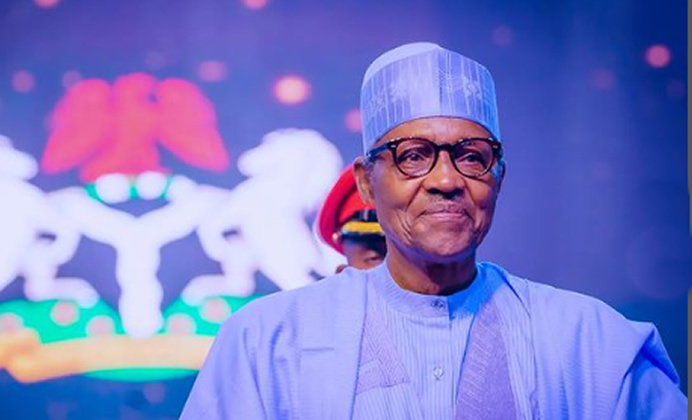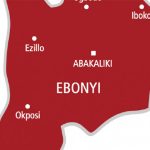
President Muhammadu Buhari has passionately defended his administration’s substantial debt profile, amounting to N77 trillion, asserting that the investment in infrastructure was a deliberate strategy to combat poverty, foster job creation, and propel economic development and prosperity.
During a virtual commissioning ceremony on Tuesday, where three bridges, three secretariats, and a road project executed by his administration were unveiled, President Buhari underscored the intentional nature of prioritizing infrastructure development. He declared, “Infrastructure is not a result of happenstance for us. It has been a conscious choice made by our government to combat poverty, stimulate economic growth, generate employment opportunities, and pave the way for the prosperity of our people.”
While acknowledging the concerns raised by Nigerians regarding the country’s debt burden, President Buhari emphasized that these debts were incurred for projects executed under transparent circumstances and are visible to all. Drawing attention to the wealth of other nations, he attributed their success to investments in infrastructure made possible through long-term debt redemption.
President Buhari asserted, “As we scrutinize the debt profile, I urge us to also consider the assets and investment portfolios that have been acquired. Some were financed through debt, while others were funded by investment income.” He proudly stated that over the course of eight years, Nigeria’s infrastructure stock as a proportion of GDP had doubled from approximately 20% to over 40%, which he described as a monumental achievement.
The President highlighted the significance of the commissioned projects, along with previous accomplishments in rail, sea, airport, and gas pipeline developments, as clear manifestations of the country’s resolute commitment to delivering prosperity. In a statement released by his spokesperson, Garba Shehu, President Buhari expounded on the projects’ importance, stating that they directly addressed multidimensional poverty, enhanced business efficiency, and expedited service delivery.
Elaborating on the three bridges, President Buhari explained their purpose and impact. He stated, “The Ikom Bridge aims to bolster trade in and around the Calabar Port and Free Zone, facilitating transportation connectivity from the South-South region through the North Central to the Northeast.
This bridge spans the Cross River itself.” Regarding the Second Niger Bridge, he acknowledged its long-awaited realization, emphasizing its significance as a preferred route for individuals crossing from the Southeast to the Southwest, traversing the River Niger. Additionally, the Loko-Oweto Bridge, spanning the River Benue, would provide a shorter route for those traveling from Benue to Nasarawa and the Federal Capital Territory, bypassing Lafia and enabling connectivity to Keffi and Abuja.
President Buhari also inaugurated a 200-kilometer stretch of the 365-kilometer Abuja-Kano highway, noting that funding for the road, the Second Niger Bridge, and the Lagos-Ibadan Expressway had been partly sourced from dividend income earned through investments in the Nigeria Liquefied Natural Gas (NLNG), repatriated overseas funds, and proceeds from successful domestic prosecutions of criminal activities. He emphasized that such investment of dividend income into tangible and lasting assets exemplified the promised change and the utilization of recovered assets for the nation’s collective welfare.
Furthermore, President Buhari officially opened three Federal Secretariats in Anambra, Bayelsa, and Zamfara States, envisioning that these facilities would consolidate federal civil servants under one roof, enhancing service delivery efficiency while reducing expenditure on office space rentals. The President named the secretariats after distinguished Nigerians, such as Dr. Goodluck Ebele Jonathan, who had the Federal Secretariat in Yenagoa, Bayelsa State named in his honor, as well as Ebele Okeke and Malam Yahaya Gusau, who had federal secretariats named after them in





Comments are closed.